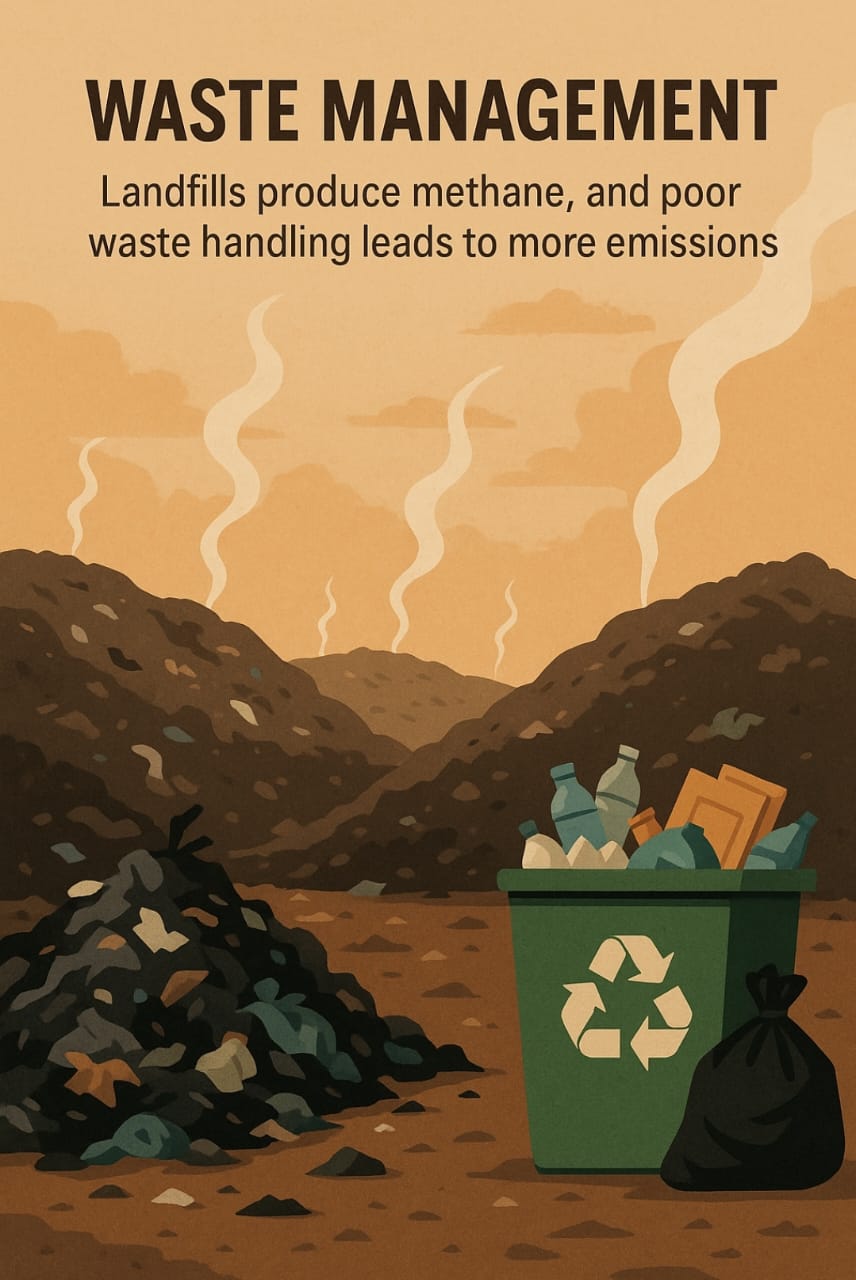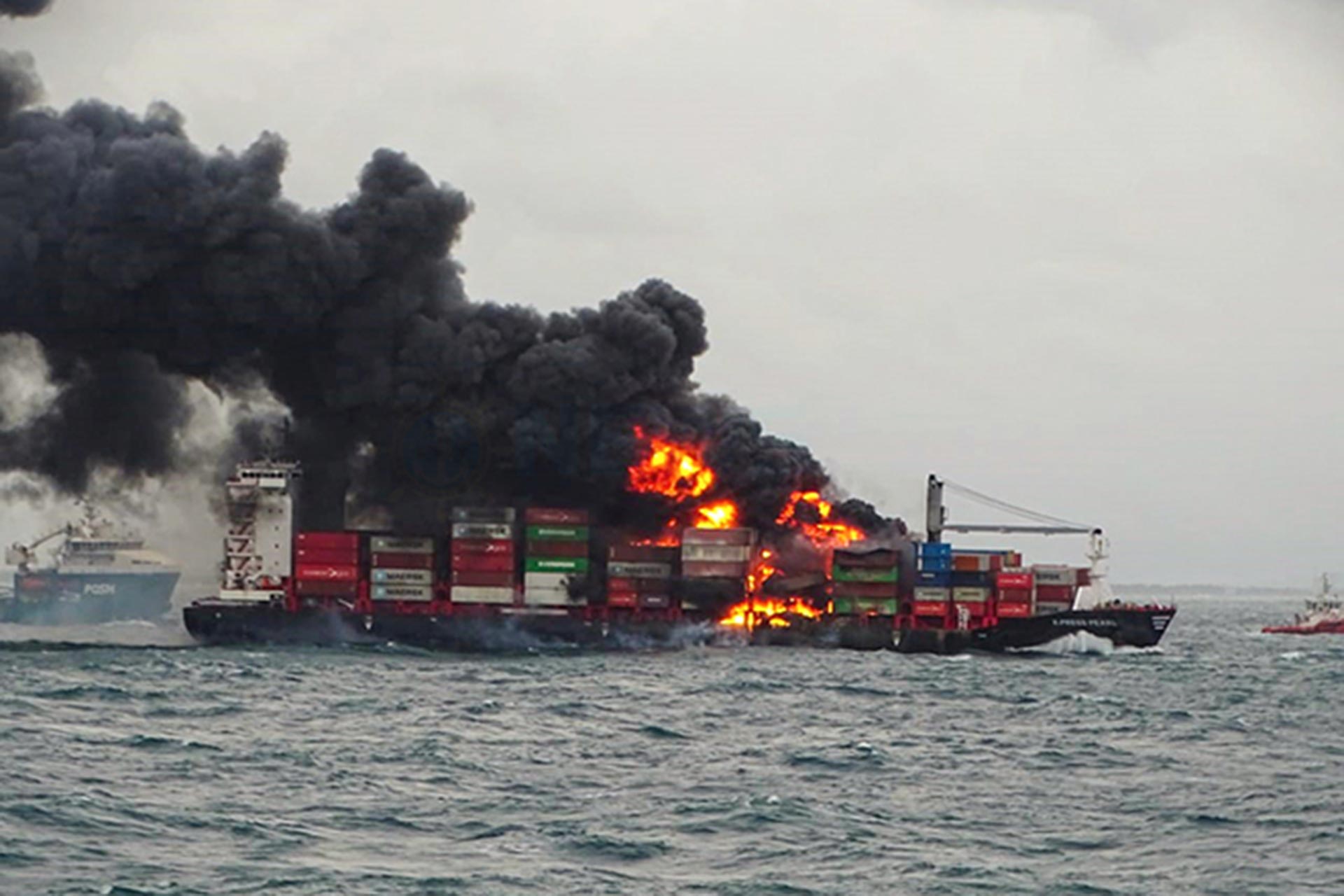By, Fathima Samila
Climate change stands as one of the most urgent challenges of our era, affecting ecosystems, economies, and communities worldwide. While energy consumption and industrial activities are often highlighted as primary contributors to greenhouse gas emissions, waste management plays a crucial yet sometimes overlooked role in combating climate change.
Understanding the Link Between Waste and Climate Change
Waste management is intricately connected to climate change through the emission of greenhouse gases such as methane and carbon dioxide. Improper waste disposal methods, particularly in landfills, generate significant amounts of methane — a greenhouse gas that is over 25 times more potent than carbon dioxide over a 100-year period. Organic waste, when decomposed anaerobically (without oxygen) in landfills, releases methane into the atmosphere, exacerbating global warming.
Moreover, the production, transportation, and disposal of materials consume energy and emit greenhouse gases at various stages. Every item discarded represents not just physical waste but wasted resources and energy.
Strategies for Sustainable Waste Management
Addressing the waste-climate nexus requires comprehensive and sustainable waste management strategies. Key approaches include:
- Waste Reduction and Minimization:
The most effective strategy is to reduce the generation of waste at its source. This can be achieved through mindful consumption, improved product design, and the adoption of circular economy principles that emphasize reuse and recycling. - Recycling and Resource Recovery:
Recycling materials like paper, plastic, glass, and metals reduces the need for virgin resource extraction and processing, significantly cutting down greenhouse gas emissions. Composting organic waste instead of sending it to landfills not only prevents methane emissions but also produces valuable soil amendments. - Energy Recovery:
Waste-to-energy technologies, such as incineration with energy recovery, can reduce the volume of waste destined for landfills while generating electricity or heat. However, these technologies must be carefully managed to minimize air pollution and ensure environmental safety. - Landfill Management:
Modern landfills can be equipped with methane capture systems that collect and utilize landfill gas as a source of renewable energy. Proper landfill management can drastically reduce methane emissions and their impact on climate change.
The Role of Individuals and Communities
While systemic changes in policy and industry practices are vital, individuals and communities also play a pivotal role in effective waste management. Actions such as reducing single-use products, composting organic waste, participating in local recycling programs, and advocating for sustainable practices can collectively drive significant change.
Educational campaigns and community engagement initiatives are essential in raising awareness about the importance of waste management in mitigating climate change. Empowering citizens with knowledge and practical tools can foster a culture of environmental responsibility and resilience.
Conclusion
Waste management is not merely an environmental or sanitation issue; it is a critical component of global climate action. By adopting sustainable waste management practices, we can significantly reduce greenhouse gas emissions, conserve resources, and build more resilient communities. As we confront the realities of climate change, embracing holistic and proactive waste strategies offers a pathway toward a healthier and more sustainable planet for future generations.








